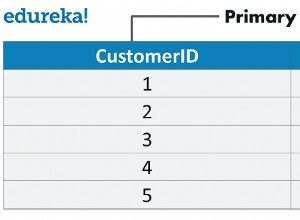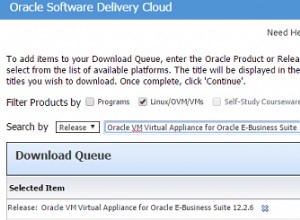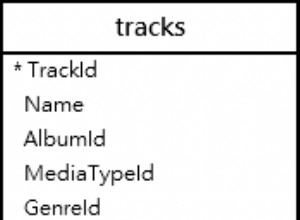Der von Ihnen im ersten Fall erwähnte Update-Ansatz kann mit reinem JDBC-Code umgeschrieben werden und reduziert so Ihre Abhängigkeit von Oracle-spezifischen Klassen. Dies kann hilfreich sein, wenn Ihre App datenbankunabhängig sein muss.
public static void updateBlobColumn(Connection con, String table, String blobColumn, byte[] inputBytes, String idColumn, Long id) throws SQLException {
PreparedStatement pStmt = null;
ResultSet rs = null;
try {
String sql =
" SELECT " + blobColumn +
" FROM " + table +
" WHERE " + idColumn + " = ? " +
" FOR UPDATE";
pStmt = con.prepareStatement(sql,
ResultSet.TYPE_FORWARD_ONLY,
ResultSet.CONCUR_UPDATABLE);
pStmt.setLong(1, id);
rs = pStmt.executeQuery();
if (rs.next()) {
Blob blob = rs.getBlob(blobColumn);
blob.truncate(0);
blob.setBytes(1, inputBytes);
rs.updateBlob(blobColumn, blob);
rs.updateRow();
}
}
finally {
if(rs != null) rs.close();
if(pStmt != null) pStmt.close();
}
}
Für MSSQL verstehe ich, dass die Sperrsyntax anders ist:
String sql =
" SELECT " + blobColumn +
" FROM " + table + " WITH (rowlock, updlock) " +
" WHERE " + idColumn + " = ? "




